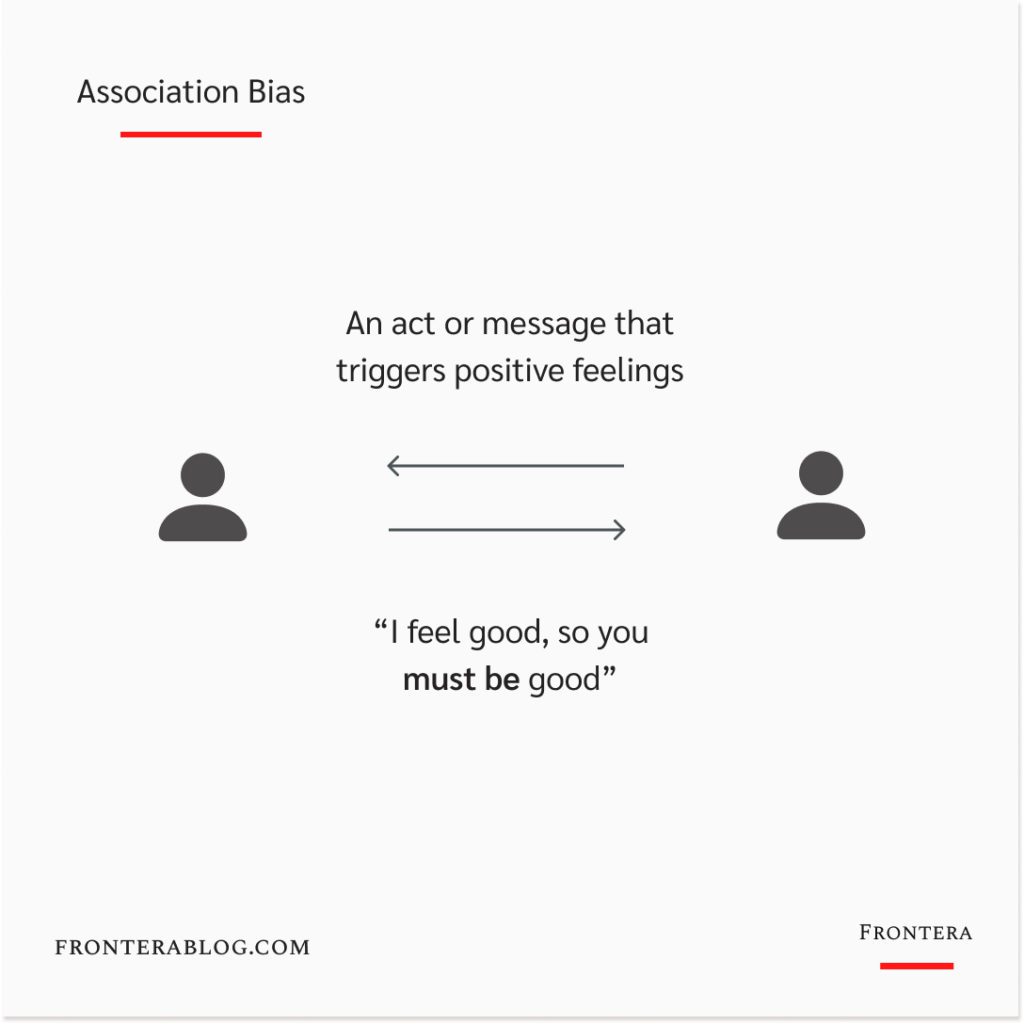Association bias is when your mind takes the emotion you feel as a cue to build an opinion about a person, brand, or event. In this article, you’ll see how it becomes a fallacy with a story and how to avoid it.
Imagine falling asleep and waking up in a garden.
A garden full of beautiful women, musicians playing instruments in the background, and delicious food.
It’s as if you are in paradise.
You spend an ecstatic day there.
But the next day you wake up in the real world again, not knowing how it happened.
And an old man tells you that he showed you paradise.
The paradise you’ll go to if you become his loyal servant.
Now, I don’t know what your answer would be.
But together with hashish and religious brainwashing, this method worked for Hasan-i Sabbah to recruit loyal followers and train them in his Order of Assassins.
Instead of having a big army, his sect assassinated key people to gain power in the 11th & 12th centuries around today’s Iran.
Even the English word assassin comes from hashasi in Arabic — which refers to his sect as “hashish eaters.”

Sabbah’s paradise worked like magic.
Because, unlike other religious leaders, he didn’t only promise paradise; he made his recruits experience it.
So they’d associate all the ecstatic feelings with serving him.
And they were ready to do anything for Sabbah.
Associations as a shortcut
Our minds use associations as a shortcut.
You hate people who complain a lot. Because you associate them with bad feelings.
Simple.
So your mind takes the emotion you feel as a cue to build an opinion about a person, brand, or event.
Maybe companies today don’t train assassins like Sabbah.
But they also use tactics for consumers to associate them with positive feelings.
Like Coca-Cola and happiness.
Or Harley-Davidson and freedom.
But these opinions can be a fallacy. And it’s called association bias.
Because in the end, a sugary drink is not good for your health, or a motorcycle cannot make you free.

How to avoid association bias and use it to your benefit
1. Separate the message from the messenger
You’ve seen examples of positive associations above.
The negative association is equally powerful.
When somebody gives us negative feedback, our first instinct is to defend ourselves and hate that person.
But he might be doing you a big favor.
So whether positive or negative, fight the initial opinions from associations.
Separate the message (happiness or bitter feeling) from the messenger (a brand or your honest colleague).
And assess the person, product, or event rationally. Also, remember the halo effect.
2. Associate your good habits with positive feelings
This is a great way to build habits.
If you like your morning coffee, associate a good habit with it — let’s say reading.
When you read every morning with a coffee, your mind will associate all the joy you get with the reading activity.
That way, you’ll look forward to your reading sessions, and it will easily become a habit.
3. Use association to your benefit
Why do salespeople take their potential clients to the best restaurants?
Because the clients would associate all the positive feelings from delicious food and fun conversation to doing business with the seller.
Obviously, you can’t take everybody to dinner.
But associate your “brand” with positive feelings even with little actions.
It can be your attitude when you greet somebody, the copy in your emails, or the video in your marketing campaign.
Humor, hope, inspiration, or happiness.
The more you trigger positive feelings, the stronger the association gets.
And avoid bad associations at all costs.
That’s why most politicians deliver the good news themselves but use their spokespersons (or ministers) to tell the bad ones.
Enjoyed this article?
Then you’ll love the How Brands Win Newsletter.
Get the “5 Mental Models to Differentiate Your Business” guide when you join. It’s free.
